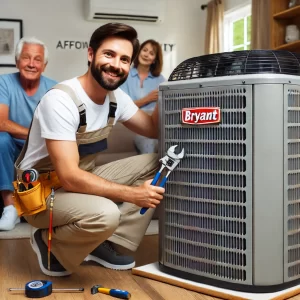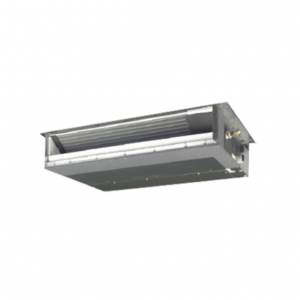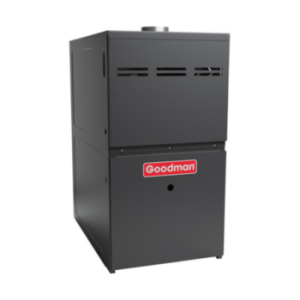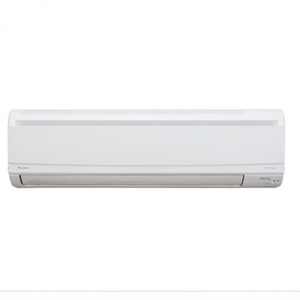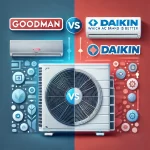Carrier vs. Bryant: Which AC Brand Is Better?
Carrier vs. Bryant – Which AC Brand Is Better?
When it comes to choosing a high-quality air conditioning system, Carrier and Bryant are two of the most well-known and trusted brands on the market. But which one is the better choice for your home? While both brands are owned by the same parent company, Carrier Global Corporation, there are key differences in pricing, features, and efficiency that can help determine which is best for you.
In this guide, we’ll compare Carrier and Bryant AC units based on performance, efficiency, cost, warranty, and overall value to help you make the best decision.
1. Carrier vs. Bryant: A Brief Background
Both Carrier and Bryant produce high-quality HVAC systems that are known for their durability, efficiency, and advanced technology. Carrier is often seen as a premium brand, while Bryant offers a more budget-friendly alternative.
Are Carrier and Bryant the Same?
Yes and no. While Carrier and Bryant share similar parts and manufacturing processes, they are marketed differently. Carrier is positioned as the higher-end brand, while Bryant is often seen as a cost-effective option. Despite this, many of their models have identical specifications, making Bryant a smart choice for those looking to save money without sacrificing quality.
2. Performance & Cooling Efficiency
SEER2 Ratings: How Efficient Are They?
SEER2 (Seasonal Energy Efficiency Ratio 2) measures an AC unit’s cooling efficiency—the higher the number, the better the efficiency. Both Carrier and Bryant have high-efficiency units, but Carrier offers models with slightly higher SEER2 ratings.
| Brand | Model | SEER2 Rating |
| Carrier | Infinity 26 (24VNA6) | 24.5 (Ultra-efficient) |
| Bryant | Evolution 189BNV | 19.0 (High-efficiency) |
| Carrier | Performance 17 | 17.0 (Moderate efficiency) |
| Bryant | Preferred 127A | 17.0 (Moderate efficiency) |
Verdict: Carrier wins in overall energy efficiency, offering models with higher SEER2 ratings. If you live in a hot climate where energy efficiency is a priority, Carrier may be the better investment.
3. Price Comparison: Which Brand is More Affordable?
When comparing costs, Bryant is typically 10–15% cheaper than Carrier for similar models. This price difference is due to branding and marketing, rather than a major difference in product quality.
Average Cost Breakdown (Including Installation)
| Brand | Model | Estimated Cost |
| Carrier | Infinity 26 | $6,000 – $12,000 |
| Bryant | Evolution 189BNV | $5,000 – $10,000 |
| Carrier | Performance 17 | $4,500 – $8,500 |
| Bryant | Preferred 127A | $4,000 – $8,000 |
Verdict: If budget is your main concern, Bryant is the better choice. You get nearly identical technology at a lower price.
4. Durability & Reliability
Since Carrier and Bryant use the same internal components, their AC units offer similar durability. Both brands are designed to last 15–20 years with proper maintenance. However, Carrier’s premium models (like the Infinity Series) tend to have quieter operation and slightly better materials, which may contribute to a longer lifespan.
Verdict: Tie—both brands are highly durable, but Carrier’s premium models may last longer due to advanced materials and build quality.
5. Warranty & Customer Support
Both Carrier and Bryant offer a 10-year limited parts warranty when registered within 90 days of installation. However, some HVAC contractors report that Bryant’s warranty claims process is slightly easier than Carrier’s.
Carrier’s Warranty:
- 10-year limited parts warranty (with registration)
- 5-year warranty if not registered within 90 days
Bryant’s Warranty:
- 10-year limited parts warranty (with registration)
- Some models offer an optional extended warranty
Verdict: Tie, but Bryant’s warranty may be slightly easier to claim, depending on your installer.
6. Noise Levels: Which Brand is Quieter?
Carrier and Bryant both offer variable-speed compressors that operate at whisper-quiet levels. However, Carrier’s top models have additional noise-reducing technology, making them slightly quieter.
| Brand | Model | Noise Level (Decibels) |
| Carrier | Infinity 26 | 51 dB (Super quiet) |
| Bryant | Evolution 189BNV | 56 dB (Very quiet) |
| Carrier | Performance 17 | 72 dB (Moderate) |
| Bryant | Preferred 127A | 74 dB (Moderate) |
Verdict: Carrier wins in quiet operation, but Bryant models are still relatively quiet.
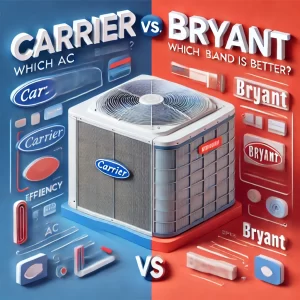
7. Installation & Availability
Because Carrier is a premium brand, not all HVAC contractors are authorized to install it. Bryant, being more affordable, is often available through a wider range of dealers.
Additionally, some contractors recommend Bryant over Carrier because it offers the same quality at a lower price. If you have a trusted HVAC installer who recommends Bryant, it could be a great way to save money.
Verdict: Bryant is often easier to find and install through a variety of HVAC contractors.
Final Verdict: Which Brand is Better?
| Feature | Winner |
| Cooling Efficiency | Carrier |
| Price & Affordability | Bryant |
| Durability | Tie |
| Warranty | Tie (Bryant easier claims) |
| Noise Levels | Carrier |
| Installation Availability | Bryant |
Who Should Buy Carrier?
✅ You want the most efficient AC unit for hot climates
✅ You prefer quieter operation
✅ You don’t mind paying a premium for top performance
Who Should Buy Bryant?
✅ You want the best value for your money
✅ You need an AC that’s easier to find and install
✅ You want similar technology to Carrier, but cheaper
Final Recommendation
If budget is a concern, Bryant is the best choice—offering nearly identical quality for less money. However, if energy efficiency, premium build quality, and quiet operation are your top priorities, Carrier is worth the extra cost.
Would you like a recommendation based on your home size and climate zone? Let me know!


